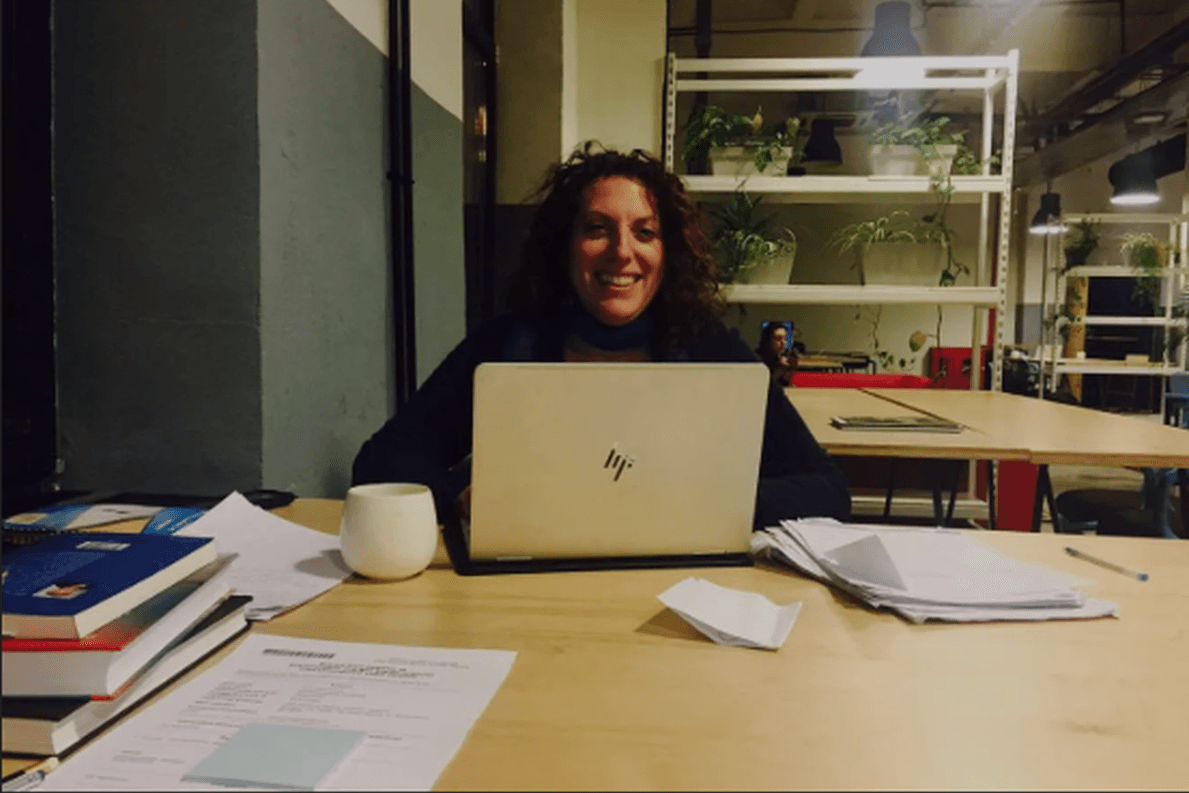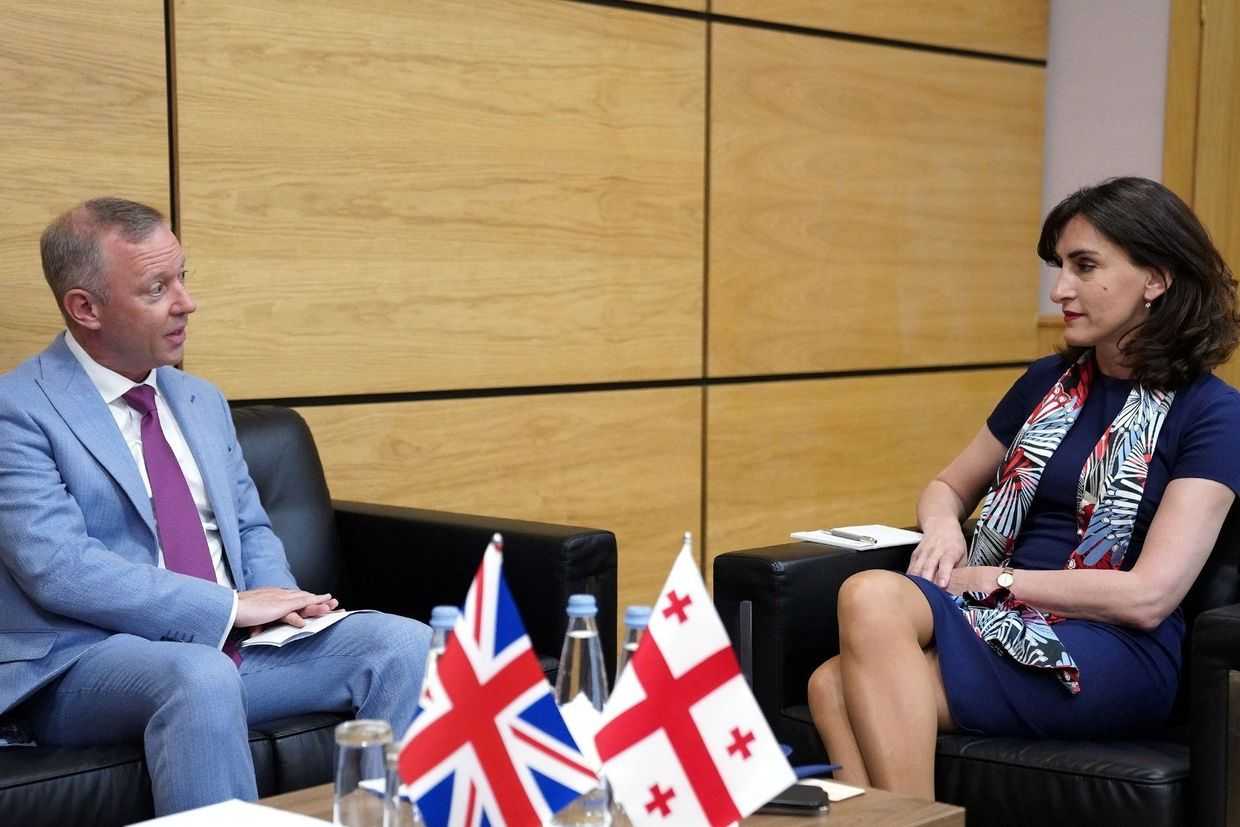
Editor’s note: This article has been updated to include comments from Maggie Osdoby Katz.
A former US diplomat and civic sector consultant, Maggie Osdoby Katz, was denied entry to Georgia on Saturday in what appears to be the latest in a series of refusals to foreign nationals with specific professional profiles.
Katz wrote on Facebook that she was turned away at the border with ‘no questions asked’ and no real explanation given.
‘27 years of living, visiting and supporting my beloved [...] home. My heart is [broken]’, she wrote.
Ukrainian news outlet the Kyiv Post reported that her phone was confiscated ‘during several hours in a holding area before she was placed on an outbound flight’.
Katz has reportedly lived on and off in Georgia for prolonged periods of time, working for the US Embassy, election monitoring missions, consulting civil society organisations and social entrepreneurs, and working on peace building and democracy initiatives.
In February, Katz promoted OC Media’s fundraising campaign, responding to the crackdown on independent media in the country.
Later that month, she launched her own campaign, seeking ‘urgent support for Georgia’s democratic future’ amid the US foreign assistance freeze, which raised over $10,000.
In response to a request for comment from OC Media, the US Embassy said that it was ‘aware of the report’, but could not comment due to privacy concerns.
Katz described her experience in a written comment to OC Media.
‘Yes, my phone was confiscated, after they gave me the decision [to not be allowed to enter] and escorted me to the holding area. It was returned when I boarded the plane under escort’.
Katz added that she was not questioned before she was refused entry.
‘I plan to appeal and pursue any and all channels available to me’, she told OC Media.
‘Georgia is a home for me, it is part of who I am, it has a piece of my soul whose absence I feel when away. I will do everything I can to be with my god kids, my friends, and the mountains I love’.
A growing list of border denials
Border officials appear to have been regularly using the justification ‘other cases envisaged by Georgian legislation’ to bar entry to foreign nationals, including Western journalists critical of the governments in Tbilisi and Moscow. This trend started after the start of popular protests in November, following the Georgian government’s decision to halt EU accession efforts ‘until 2028’.
Recent cases on entry denials include Romanian stand up comedian Victor Patrascan, prominent French photographer Marylise Vigneau, Lithuanian women’s rights advocate Regina Jegorova-Askerova, among countless others. Jegorova-Askerova reportedly had a family in Georgia, including two children, and also held permanent residency.
On 21 May, Simon Vandenbroucke, an Enlargement Programme Officer working for the EU Delegation to Georgia, was denied entry to Georgia without explanation. After the delegation addressed the Georgian Foreign Ministry regarding the matter, however, the Georgian authorities ‘presented oral apologies for the regrettable incident and confirmed that the staff member is welcome to come back to his place of posting’.
Later the same month, the French and Polish Embassies in Georgia issued travel advisories, warning their citizens they could be denied entry into Georgia or face heavy fines for participating in or sharing information on social media related to the ongoing anti-government protests.
Georgia-US diplomatic tensions
Until Katz, there appear not to have been any public cases of an American citizen being denied entry.
Georgia-US, as well as Georgia-EU diplomatic relations, have been at what many describe as their historic low, with Georgian officials using hostile language towards Western officials and touting ‘deep state’ conspiracy theories.
Earlier this year, the US imposed sanctions on Georgian authorities, including the ruling Georgian Dream’s billionaire founder Bidzina Ivanishvili. This followed the parliamentary elections of 2024, widely seen as rigged, after which the Georgian Dream announced a freeze on EU accession. This triggered mass protests across the country, with law enforcement and affiliated groups cracking down on protesters, journalists, and activists.
Last week, US Ambassador to Georgia Robin Dunnigan said in an interview with RFE/RL that Georgian Dream sent a private letter to President Donald Trump that was ‘threatening, insulting, [and] unserious’. Dunnigan added that the letter was ‘received extremely poorly in Washington’. Later in the interview, the ambassador also said she had requested to meet with Ivanishvili, but he had refused.











